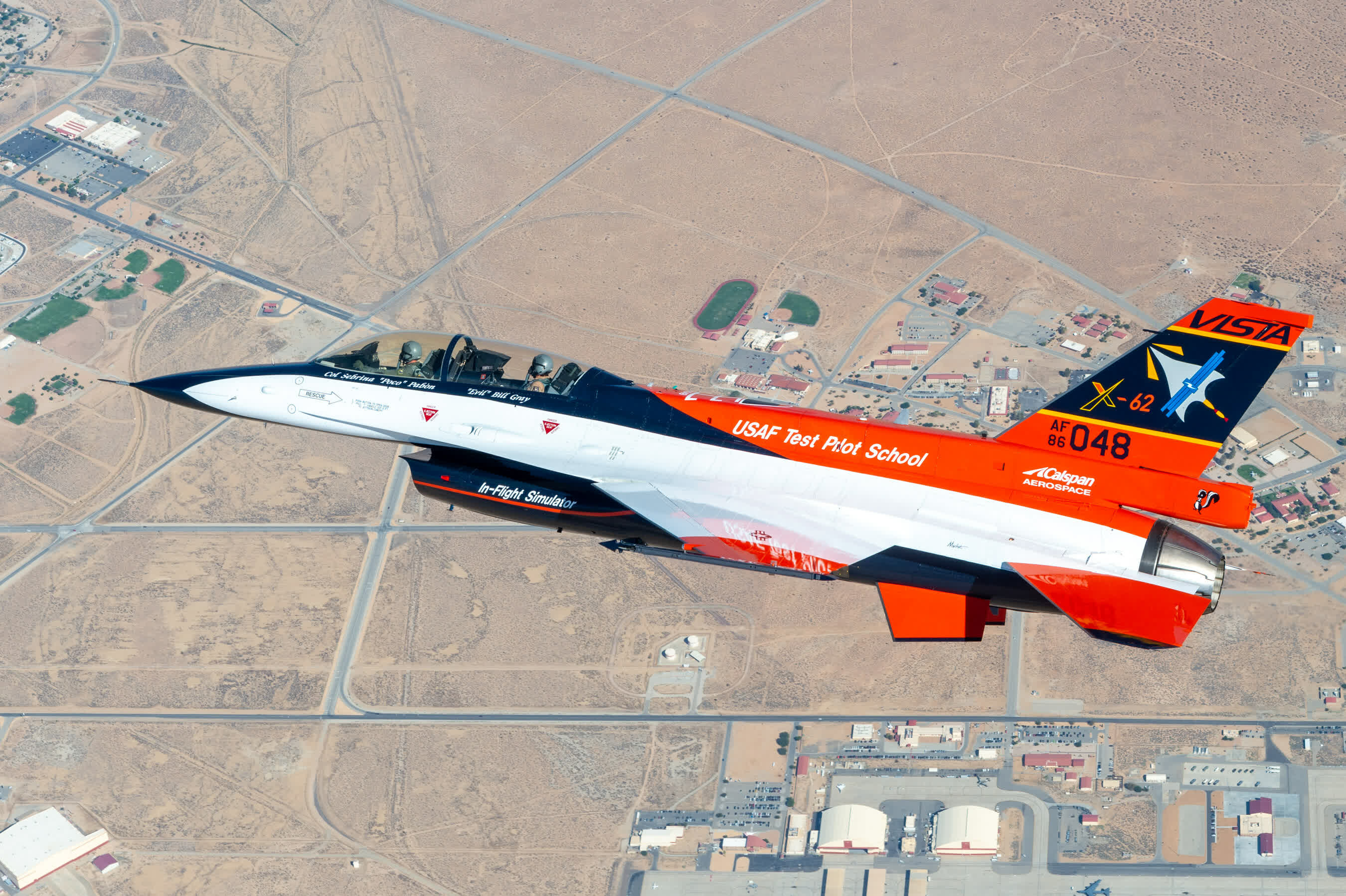In brief: In more news that could worry those who believe a Terminator-like doomsday is inevitable, Lockheed Martin has announced that artificial intelligence flew a training jet for 17 hours recently, marking the first time that AI has been engaged in this way on a tactical aircraft.
The Lockheed Martin VISTA (Variable In-flight Simulation Test Aircraft) X-62A, created by Lockheed Martin's Skunk Works classified research laboratory alongside Calspan Corporation, is fitted with software that allows it to mimic the performance characteristics of other aircraft. In December, the aircraft was flown for 17 hours by AI as part of tests at the US Air Force Test Pilot School at Edwards Air Force Base in Kern County, California.
"VISTA will allow us to parallelize the development and test of cutting-edge artificial intelligence techniques with new uncrewed vehicle designs," US Air Force Test Pilot School (USAF TPS) director of research Dr. M. Christopher Cotting said in a statement. "This approach, combined with focused testing on new vehicle systems as they are produced, will rapidly mature autonomy for uncrewed platforms and allow us to deliver tactically relevant capability to our warfighter."
The US Air Force recently upgraded the VISTA X-62A with Lockheed's Model Following Algorithm (MFA) and System for Autonomous Control of the Simulation (SACS), which integrate into the VISTA so it can perform advanced flight tests that focus on autonomy and AI.
In addition to its autonomous flight capabilities, the VISTA X-62A also features a high-resolution camera, a compact size, lightweight construction, and is versatile enough to be used for a wide range of applications, including scientific research, surveillance, recon, environmental monitoring, and emergency response.
Lockheed Martin says that it has been applying and deploying AI technologies for decades to help its customers maximize performance, safety, and situational awareness. The company says its implementations keep users in control while enabling them to be safer, more effective, and better able to focus on higher-level tasks.
Talk of uncrewed, AI-controlled vehicles is always going to raise concerns. Elon Musk is one of the hundreds of AI experts who previously called for a ban on 'Killer Robots.' In 2019, the army responded to these fears by insisting that the final decision to engage a target rests with humans, not machines. Just how much that alleviated people's concerns is unclear
